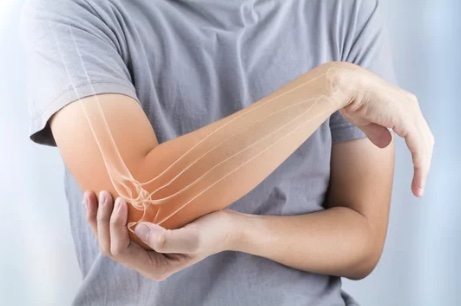
Shoulder arthritis is a condition where the cartilage in the shoulder joint gradually wears away, causing pain, stiffness, and limited range of motion.
Causes of shoulder arthritis
The exact cause of shoulder arthritis is not fully understood, but there are several factors that can increase the risk of developing the condition, including:
Age: As people get older, the risk of developing shoulder arthritis increases.
Genetics: Some people may be more prone to developing arthritis due to their genetic makeup.
Previous shoulder injuries: People who have had a previous shoulder injury, such as a fracture or dislocation, are at increased risk of developing arthritis in the shoulder.
Overuse: Athletes or people who perform repetitive overhead movements, such as throwing a ball, may be at increased risk of developing shoulder arthritis due to overuse of the joint.
Inflammatory arthritis: Inflammatory arthritis, such as rheumatoid arthritis, can also affect the shoulder joint and cause arthritis.
Osteoarthritis: This is the most common type of shoulder arthritis and occurs when the protective cartilage in the shoulder joint wears away over time.
Symptoms of shoulder arthritis
The symptoms of shoulder arthritis can vary from person to person, but common symptoms include:
Pain: Pain in the shoulder joint is the most common symptom of shoulder arthritis. The pain can be a dull ache or a sharp, shooting pain that is aggravated by movement or activity.
Stiffness: People with shoulder arthritis may experience stiffness in the shoulder joint, especially in the morning or after periods of inactivity.
Limited range of motion: Shoulder arthritis can cause a limited range of motion in the shoulder joint, making it difficult to perform everyday activities, such as reaching overhead or lifting objects.
Weakness: Weakness in the shoulder or arm is another common symptom. People with shoulder arthritis may have difficulty lifting or carrying objects or performing activities that require arm strength.
Grinding or clicking sensation: Some people with shoulder arthritis may experience a grinding or clicking sensation in the shoulder joint when moving the arm.
Tenderness: The shoulder joint may be tender to the touch, especially around the collarbone and upper arm.
Diagnosing shoulder arthritis
In most cases, diagnosis of degenerative joint disease of the shoulder can be made with careful history, physical examination, and radiography in consultation with Dr Singh.
with the symptoms and degree of shoulder arthritis visible on radiography determine the best treatment option.
Treatment options for shoulder arthritis
Mild degenerative joint disease can be treated with physical therapy and over-the-counter anti-inflammatory medications such as acetaminophen or nonsteroidal anti-inflammatory drugs.
More advanced cases of osteoarthritis that are refractory to nonoperative management can be managed with corticosteroid injections and in severe cases, surgery is indicated. Surgical options include arthroscopic debridement, arthroscopic capsular release, and, in the most severe instances, hemiarthroplasty or total shoulder arthroplasty.
These treatment options can all be discussed in your consultation with Dr Singh as, many conditions can cause shoulder pain and/or arthritis so, a correct diagnosis in consultation with Dr Singh is critical in determining the best treatment option for you.
 Christmas Operating Hours
Christmas Operating Hours 



















